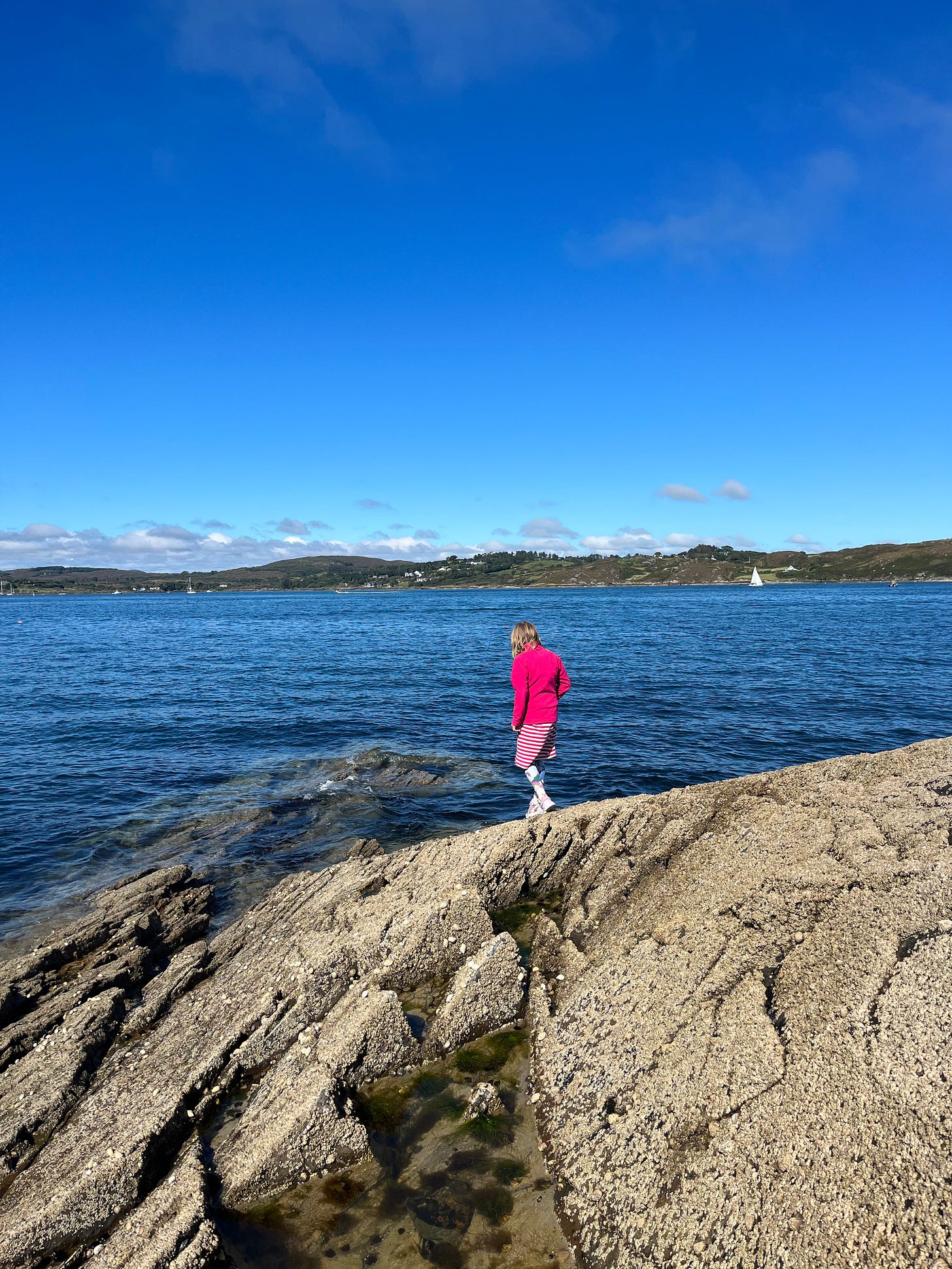This is the latest instalment of the 21 day writing challenge I did with Megan Macedo, where I wrote a piece in response to a prompt (unseen by the reader) every day. I’ve scheduled a couple of these posts per week for the rest of August so they’re finally up and out into the world. I hope it’s not overwhelming and that you get something from them. Thank you for being here.
“Microplastics have also recently been discovered in human blood and breast milk, indicating widespread contamination of people’s bodies. The impact on health is as yet unknown but microplastics have been shown to cause damage to human cells in the laboratory. The particles could lodge in tissue and cause inflammation, as air pollution particles do, or chemicals in the plastics could cause harm … He said the growing concentration of microplastics in human tissue could explain puzzling increases in some health problems, including inflammatory bowel disease (IBD), colon cancer in people under 50, and declining sperm counts.”
- from a Guardian article
I turned on my kitchen tap and put my glass under it and the person with me asked in surprise if I was REALLY going to drink that. Then came a conversation about forever chemicals and carcinogens and taking basic precautions, like filtering your water.
Endocrine disruptors in cleaning products, toxins in gel nail varnish, pollution in the air we breathe, microplastics found in every human placenta tested in a study - the health of our planet and our own bodies is intimately linked, and reading the news often leaves me with the sense that we are all absolutely fucked. I have this sense that I was wrong to not worry and indeed I need to spend more time worrying, something I know is an illusion of safety.
A few months ago I decided to leave a Facebook group that had been set up by a nutritionist/women’s hormone specialist. There was an unbelievable amount of information shared by people with varying levels of knowledge for the benefit of women with varying levels of desperation about their hormonal symptoms, which at first felt quite useful and interesting. I had lots of leads and options to explore for some of the symptoms I’ve been experiencing.
And soon the number of leads and options felt utterly overwhelming, as did all the things that might be detrimental to my wellbeing according to this page. The culprits seemed to include anything and everything from gluten to dairy to non-stick pans to mould in my home to not doing enough cardio. I remember one woman saying she never eats out anywhere and cooks everything from scratch. I still have that reaction of reading anything online, an immediate should I be doing that? Do I need to check my pans and work harder to remove the small patches of mould from our damp windows? Should I cut out dairy and gluten? Should I never eat out anywhere?
There’s little doubt that the food we eat, the air we breathe, the way we move (or don’t move) our bodies and the products we use have a profound effect on us. And also there’s little doubt that the level of control required to optimise all my inputs would have a very detrimental effect on my mental health. I am a fairly healthy person and I want to continue to be that. But also I have to believe, and act like I believe, that my body is resilient. Trying to optimise everything all the time encourages me to monitor everything closely in my body, which, as I’ve written about in this challenge, always has a kind of quantum effect: once I start to observe, things change or they feel like they do. I simply can’t do that and maintain good mental health.
Controlling everything and removing everything “unhealthy” is safety behaviour, it creates a mini version of the tight feeling in my chest deposited by my worst and most catastrophic theories. During the most intense spells of my health anxiety, it’s easy for the innocent-seeming research I’m doing on vitamin D supplements to slip into obsessive thoughts in my mind, or compulsion in my actions.
This level of “healthy living”, of strict control, feels akin to removing spontaneity and fun and joy. Some of my favourite memories are sensory and “treat'-y”, as my 8 year old would say: fish and chips above the beach in Cork, that perfect glass of wine on the roof terrace in London, the chocolate on the sofa at the end of the day. Everything in moderation feels closer to really living.
Health anxiety is borne of a fear of not having control, but there’s also something healing for me about embracing our utter lack of control, attempting to hold the reality of uncertainty and find joy in the moment. If we’re all f***ed, then shouldn’t we get on with our lives and enjoy them? The modern world feels full of danger, but I suspect it always has, or perhaps it does to certain types of people, to those of us more alert to threat. I’m always trying to work out what is an appropriate turn towards danger and where else it’s better to place my attention. To spend more time living and thinking about what it is to really live, without a fearful “while you still can” mentality. This attempt at presence feels impossible at times, it’s a letting go into the moment, not forcing myself to get there. It’s expansive not constricted and when my body remembers it, it wants to spend more time living there.





Absolutely Chloe. So glad you left that group!